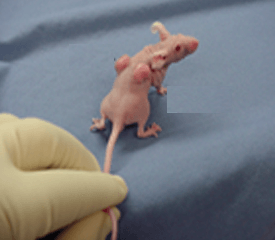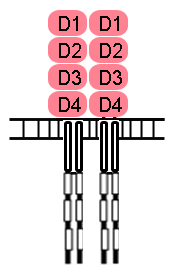FOCUS AREAS
Research Program at IT Bio
T Bio LLC. IT (Immune Therapy) Bio was founded in 2018 with long-term objective to develop advanced generation “designer” CAR-T for HIV therapies. In parallel, we are developing technology to improve checkpoint receptor therapy in cancers.
Our mission is to design novel anti-exhaustion therapies to improve treatments against cancers and chronic viral infections
Anti-Exhaustion Therapies Against Cancer and HIV
Our risk of cancer increases significantly after age 50, and half of all cancers occur at age 66 and above. Our expertise ranges from the lab bench to the bedside. We are even studying the impact of chemotherapy as a driver of secondary cancers.
Anti-Exhaustion Therapy in Cancer
The focus area of research at IT Bio is to explore and design therapies to target T cell dysfunction in cancer and chronic viral infections. A hallmark of terminal T cell exhaustion is the upregulation of Checkpoint Receptor (CR) axis and downregulation of Cytokine axis. With perturbation of these two Axes, T cells infiltrating immunogenic tumors become dysfunctional. Research over the years has shown that by addressing therapeutically these two Axes of Exhaustion, T cells can reverse aspects of functional decline, ultimately restoring killing activities. Clinically, however, the CR axis of checkpoint receptor blockade (CRB) interventions has attracted the most attention due to success in eradicating previously intractable stage III and IV cancers. Still, only 20% to 40% of patients respond to single agent CRB, while >50% of patients exhibit tumor progression. The failure to address concurrently the Cytokine axis may be cause for the limited response rates versus what might otherwise be possible. We have demonstrated that that pharmacologic treatment with Ezh2 inhibitors restored IL2 production in clinical grade anti-CEA CART cells that reversed CAR-T exhaustions. Our results demonstrate that anti-PD1 therapy when combined with pharmacologic inhibitor caused inhibition of tumor growth in syngeneic mouse model compared to single agent therapy as well as improved survival rate.
Anti-Exhaustion therapies against HIV
Our second focus area of research is to create a new IND-ready CAR-T platform for the treatment of HIV, developed in the laboratory and tested in non-human primates. Molecular engineering techniques have been applied to create chimeric antigen receptors (CAR) expressed in T cells to target HIV-infected cells. CD4-based CARs are designed to achieve immune eradication of HIV1 infections through recognizing gp120 envelope protein on infected cells. However, prior clinical trials did not meet with success, which we propose to address with the plan of this research. One of the features predicted to affect efficiency of CD4 CAR is T cell exhaustion, characterized by high PD1 expression of HIV-specific CD8 and CD4 T cells. Our laboratory defined transcription factor YY1 to be master regulator of T cell exhaustion, mediating upregulation of checkpoint receptors (CR) and downregulation of Type I cytokines with accompanying cytotoxic failure. We confirmed that YY1 is increased in parallel with PD1 in CD4 T cells in chronic HIV infection. Knockdown of YY1 restored cytokine IL2 production in preclinical testing and reduced CR expression correlated with recovered T cell cytotoxic potency. Another drawback of prior CD4-based CAR-T is that CD8 T cells expressing the CD4 CAR receptor are now readily infected and eliminated by HIV that could also have hampered success of prior human trials in 3rd generation 3-signal constructs for which we have incorporated anti-HIV RNAi. Lastly, prior tests involved 1st generation (gen) CARs of limited signaling potential that are now improved with addition of costimulation that may be yet further improved.
Our overall goal is to create a more effective CAR-T for the control of HIV. A similar strategy could be adopted to treat other chronic viral infections.


